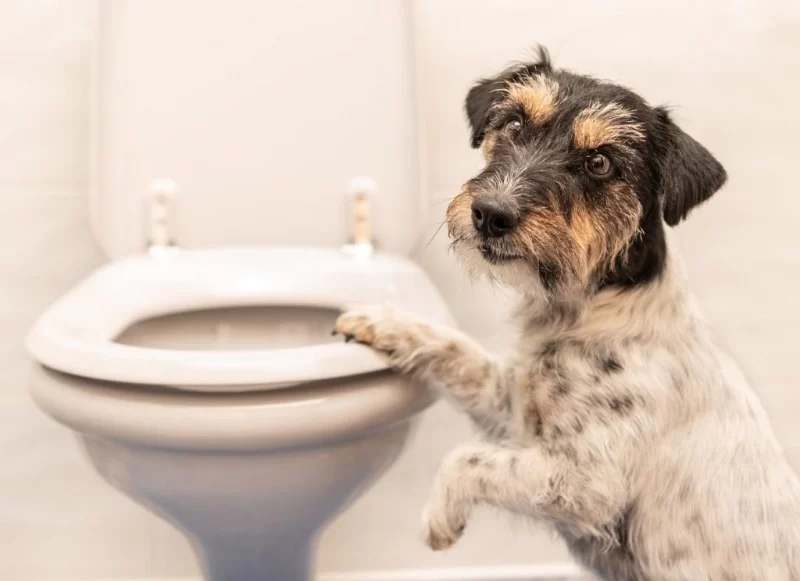10 Common Causes of Dog Diarrhea and When to See a Vet
- sudden-diet-changes-and-their-effect-on-dog-digestion
- food-intolerances-or-allergies-leading-to-loose-stools
- bacterial-viral-or-parasitic-infections-in-dogs
- stress-and-anxiety-as-overlooked-diarrhea-triggers
- toxins-and-ingested-foreign-objects
- inflammatory-bowel-disease-and-chronic-gut-issues
- medications-or-antibiotics-that-affect-digestion
- pancreatitis-and-digestive-enzyme-deficiencies
- age-related-digestive-changes-in-senior-dogs
- when-dog-diarrhea-means-its-time-to-visit-hidden-brook-veterinary
1. Sudden Diet Changes and Their Effect on Dog Digestion
One of the most common causes of dog diarrhea is a sudden change in food. Dogs have sensitive gastrointestinal systems, and abrupt shifts—from kibble to raw food or from one brand to another—can upset the gut’s balance of bacteria, leading to loose stools.
Always transition food gradually over 7–10 days. Even switching from puppy to adult formula too fast can cause temporary digestive upset.
2. Food Intolerances or Allergies Leading to Loose Stools
Some dogs are intolerant to specific ingredients like beef, chicken, dairy, or grains. Chronic diarrhea could be a sign of food sensitivity, especially when paired with itching, gas, or ear infections.
An elimination diet under veterinary guidance can help identify triggers. Hypoallergenic or limited-ingredient foods may offer long-term relief.
3. Bacterial, Viral, or Parasitic Infections in Dogs
Pathogens like Salmonella, parvovirus, Giardia, or hookworms can lead to severe diarrhea—often accompanied by blood, lethargy, and fever. These infections are more common in puppies, unvaccinated dogs, or those exposed to contaminated water, feces, or communal play areas.
Quick diagnosis and treatment are crucial. Diarrhea that is foul-smelling, dark, or persistent should always prompt a visit to your vet.
4. Stress and Anxiety as Overlooked Diarrhea Triggers
Just like people, dogs can develop digestive issues from stress. Moving to a new home, loud fireworks, vet visits, or boarding can all trigger what’s known as stress colitis. The result? Loose, sometimes mucousy stools.
If your dog’s diarrhea seems linked to life changes or emotional disruption, stress management techniques and probiotics may help stabilize their system.
5. Toxins and Ingested Foreign Objects
Dogs are curious by nature—and that sometimes gets them into trouble. Ingesting spoiled food, garbage, houseplants, or even socks and toys can lead to diarrhea, vomiting, or blockages.
If your dog is vomiting in addition to diarrhea, seems to be straining without result, or has a bloated belly, it could indicate a life-threatening obstruction. Seek emergency care immediately.
6. Inflammatory Bowel Disease and Chronic Gut Issues
When diarrhea becomes long-term or relapses frequently, inflammatory bowel disease (IBD) may be to blame. It’s a complex condition linked to immune system dysfunction and often requires diagnostic imaging or biopsy to confirm.
IBD is manageable with diet adjustments, medications, and supplements—but only with proper veterinary care and diagnosis.
7. Medications or Antibiotics That Affect Digestion
Antibiotics, steroids, and even heartworm preventives can disrupt the gut microbiome. Antibiotic-associated diarrhea is common, especially when the medication kills good bacteria along with harmful ones.
Your vet may recommend probiotics during or after treatment to support gut health and prevent upset.
8. Pancreatitis and Digestive Enzyme Deficiencies
Pancreatitis is an inflammation of the pancreas that can cause vomiting, diarrhea, and severe abdominal pain. It’s often triggered by fatty food—like table scraps after a holiday dinner.
Exocrine pancreatic insufficiency (EPI), on the other hand, is a chronic condition where dogs lack enzymes needed to digest food. Both require medical management and strict diets.
9. Age-Related Digestive Changes in Senior Dogs
As dogs age, their digestion often slows. Senior dogs may become more sensitive to certain proteins, lose digestive enzymes, or experience internal changes that affect stool consistency.
Senior-specific dog foods with added fiber or prebiotics can help regulate digestion, but chronic issues should always be evaluated by a veterinarian to rule out underlying disease.
10. When Dog Diarrhea Means It’s Time to Visit Hidden Brook Veterinary
So, how do you know when it’s time to stop Googling and head to the vet? Diarrhea that lasts longer than 48 hours, includes blood or black tarry stool, causes dehydration, or comes with vomiting, lethargy, or fever should never be ignored.
At Hidden Brook Veterinary, we understand how alarming it is to see your dog struggling with diarrhea. That’s why our team offers fast diagnostics, personalized treatment plans, and nutritional counseling tailored to your dog’s age, breed, and lifestyle. Whether it’s a one-time upset or a chronic concern, we’re here to help your pup feel better—tail wags and all.
If your dog’s gut is telling you something’s wrong, don’t wait. Let Hidden Brook Veterinary give you answers—and relief for your best friend.












